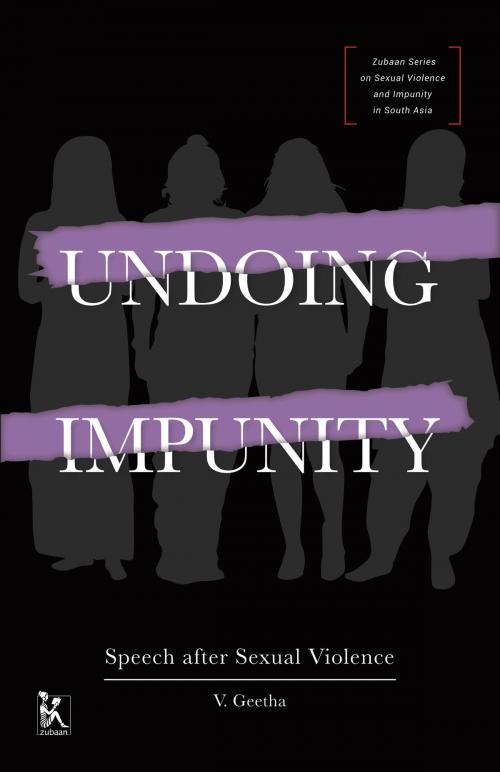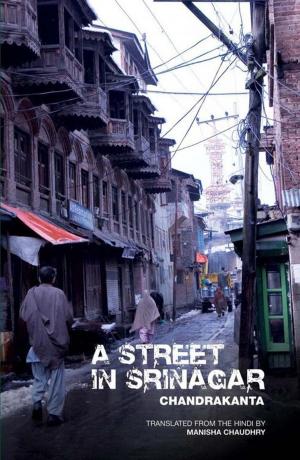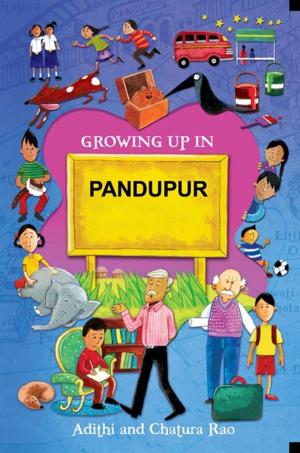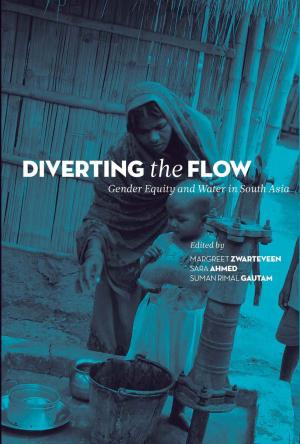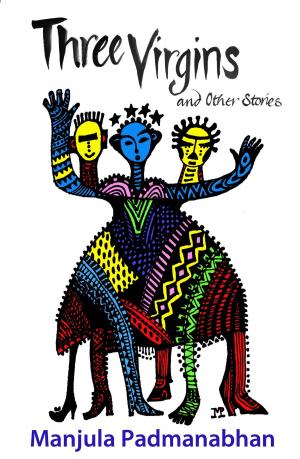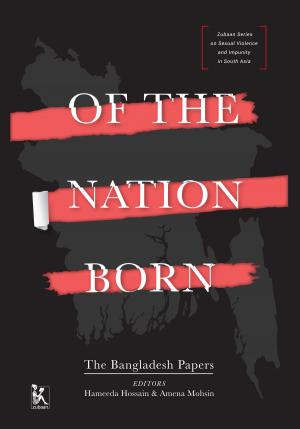Undoing Impunity
Speech after Sexual Violence
Nonfiction, Reference & Language, Law, Criminal law, Social & Cultural Studies, Political Science, Politics, Civil Rights, Social Science, Gender Studies, Feminism & Feminist Theory| Author: | V. Geetha | ISBN: | 9789385932151 |
| Publisher: | Zubaan | Publication: | November 28, 2016 |
| Imprint: | Language: | English |
| Author: | V. Geetha |
| ISBN: | 9789385932151 |
| Publisher: | Zubaan |
| Publication: | November 28, 2016 |
| Imprint: | |
| Language: | English |
The Sexual Violence and Impunity in South Asia research project (coordinated by Zubaan and supported by the International Development Research Centre) brings together, for the first time in the region, a vast body of knowledge on this important yet silenced subject. Six country volumes (one each on Bangladesh,Nepal, Pakistan, Sri Lanka, and two on India, as well as two standalone volumes) comprising over fifty research papers and two book-length studies, detail the histories of sexual violence and look at the systemic, institutional, societal, individual and community structures that work together to perpetuate impunity for perpetrators.
In this remarkable and wide-ranging study, activist and historian V. Geetha unpacks the meanings of impunity in relation to sexual violence in the context of South Asia. The State’s misuse of its own laws against its citizens is only one aspect of the edifice of impunity; its less-understood resilience comes from its consistent denial of the recognition of suffering on the part of victims, and its refusal to allow them the dignity of pain, grief and loss.
Time and again, in South Asia, the State has worked to mediate public memory, to manipulate forgetting, particularly in relation to its own acts of commission. It has done this by refusing to take responsibility, not only for its acts but also for the pain such acts have caused. It has denied suffering the eloquence, the words, the expression that it deserves and papered over the hurt of its people with routine government procedures.
The author argues that the State and its citizens must work together to accord social recognition to the suffering of victims and survivors of sexual violence, and thereby join in what she calls ‘a shared humanity’. While this may or may not produce legal victories, the acknowledgment that the suffering of our fellow citizens is our collective responsibility is an essential first step towards securing justice. It is this that in a fundamental sense challenges and illuminates the contours and details of State impunity, and positions impunity as not merely a legal or political conundrum, but as resolute refusal on the part of State personnel to be part of a shared humanity.
The Sexual Violence and Impunity in South Asia research project (coordinated by Zubaan and supported by the International Development Research Centre) brings together, for the first time in the region, a vast body of knowledge on this important yet silenced subject. Six country volumes (one each on Bangladesh,Nepal, Pakistan, Sri Lanka, and two on India, as well as two standalone volumes) comprising over fifty research papers and two book-length studies, detail the histories of sexual violence and look at the systemic, institutional, societal, individual and community structures that work together to perpetuate impunity for perpetrators.
In this remarkable and wide-ranging study, activist and historian V. Geetha unpacks the meanings of impunity in relation to sexual violence in the context of South Asia. The State’s misuse of its own laws against its citizens is only one aspect of the edifice of impunity; its less-understood resilience comes from its consistent denial of the recognition of suffering on the part of victims, and its refusal to allow them the dignity of pain, grief and loss.
Time and again, in South Asia, the State has worked to mediate public memory, to manipulate forgetting, particularly in relation to its own acts of commission. It has done this by refusing to take responsibility, not only for its acts but also for the pain such acts have caused. It has denied suffering the eloquence, the words, the expression that it deserves and papered over the hurt of its people with routine government procedures.
The author argues that the State and its citizens must work together to accord social recognition to the suffering of victims and survivors of sexual violence, and thereby join in what she calls ‘a shared humanity’. While this may or may not produce legal victories, the acknowledgment that the suffering of our fellow citizens is our collective responsibility is an essential first step towards securing justice. It is this that in a fundamental sense challenges and illuminates the contours and details of State impunity, and positions impunity as not merely a legal or political conundrum, but as resolute refusal on the part of State personnel to be part of a shared humanity.
